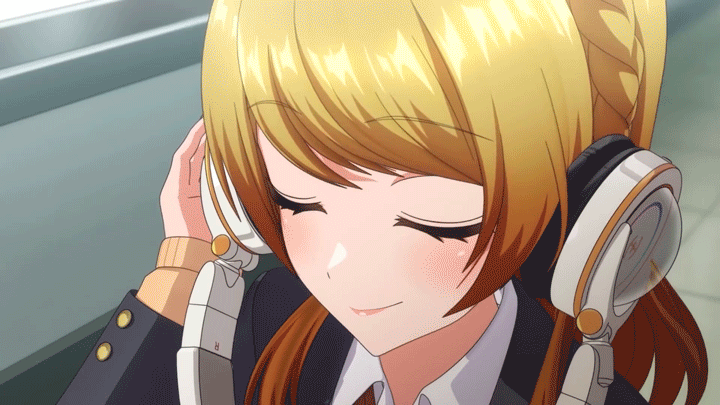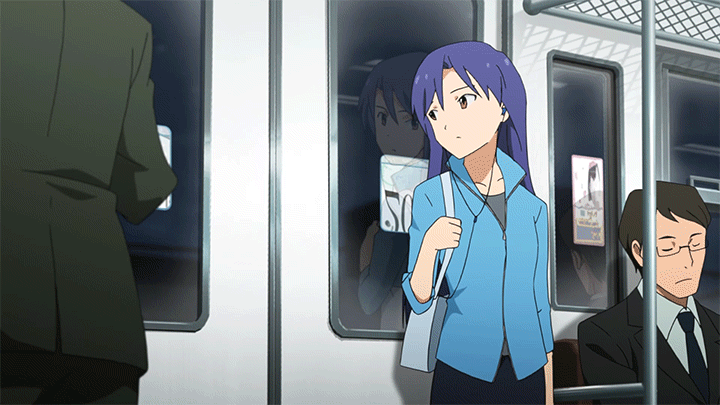BITEKI by Biteki Keikaku (Album Review) ▸ J-Music Exchange/Rate
You won’t believe who’s behind this album
You won’t believe who’s behind this album
Hello and welcome back to another J-Music Exchange/Rate review; glad to have you! In case you’re not familiar with what this is all about, allow me to explain: the E/R is a segment that I do alongside my good friend/fellow Japanese music fan Leap250 where, as the name suggests, both of us give each other an album from our music libraries, listen to them and later formulate & post our thoughts on our respective blogs. We’ve been doing this for over four years now, and not only has this been a great opportunity for both of us to just recommend some good stuff to each other, but we hope that all of you read end up with a similar experience: finding a brand new artist or album to check out and possibly vibe with.
And as always, Leap and I base our album choices each month on a specific theme. It was Leap’s turn for the month of November, and amongst a few choices he provided, we settled upon a neat one: lesser-known projects by famous artists. Whether it be a name that’s more recognizable when they’re in a band/group or someone who does things solo, it’s interesting whenever these artists venture off in a different direction and work on stuff on the side. Obviously because creative limitations and whatnot, some musicians may have ideas they really want to express in their music but aren’t able to do so in their ‘main project’ (possibly due to it not fitting), and I think it’s quite cool to see them go for other opportunities when it comes to creating/performing music.
That said, here are our choices for this month: Leap went ahead and tossed over Biteki Keikaku’s 2022 release BITEKI, while I gave him a favorite of mine from this past year, City Habits by the cool trio of brkfstblend.
Let’s jump right in!
Biteki Keikaku (美的計画) is a project that revolves around featuring multiple doujin/indie vocalists singing original composed songs. It got its start in 2019 and eventually released its first full-length album in early 2022, titled BITEKI.
As of this post’s publication date, Biteki Keikaku has put out one album and six singles.
Tracklist
Mada Asahaka / まだ浅はか (feat. WANUKA)
Aoi Risoukyou / 青い理想郷 (feat. Harutya)
Hitomini Suikomareteshimau / 瞳に吸い込まれてしまう (feat. Nazome)
Denwa to Kyoryu / 電話と恐竜 (feat. Aizawa)
Koi no Koto / 恋のこと
Heart ha Onsenbijin no Watashinomonoyo / ハートは温泉美人の私のものよ (feat. Nazome)
Ten to Sen / 点と線 (feat. satomoka)
Dakara Love / だからラブ (feat. Aizaa & Eisyu)
Peanut Butter Secret / ピーナッツバターシークレット (feat. CLR)
Kissnotabi Gyutto Gutto / KISSのたびギュッとグッと
Mount Game / マウントゲーム (feat. sora & itoha)
Fumiyomu Watashi / 文読む私 (feat. Nazome)
Released: 2022.04.22
In sociology, the concept of a "simulacrum" (plural: "simulacra") refers to a copy without an original—a recreation of something that was never created, an imitation of a reality that never existed. In the world of Japanese music, perhaps no one embodies this idea more than the renowned—and often polarizing—Kawatani Enon. To call his work simulacra might sound like an accusation of unoriginality, but it’s quite the opposite. It speaks to the distinctiveness of his style, which, for better or worse, has become so well-defined over the years that it’s instantly recognizable. His music creates a fascinating sense of doublethink: hearing a song for the first time yet feeling as though you’ve heard it before, as if it exists both in the present and as a memory. At the very least, that's the feeling I got when I first listened to Biteki Keikaku's "BITEKI".
If I’m being completely honest, seeing Kawatani collaborate with a group of Japan’s “faceless” J-Pop artists on Biteki Keikaku wasn’t something I ever expected to cross off my Kawatani bingo card. Sure, we’ve seen him dabble in similar territory before, working with virtual talents like Kizuna Ai and KAF a few years ago, but I always thought of that as one-off venture. In hindsight, though, that brief foray into the world of Japanese virtual performers might have sparked the idea for him to experiment with a more anonymous approach to music. Whether or not that was his actual intent here, I can’t say—but if it was, it’s undeniably a tough sell, as much of this album is unmistakably his work—which, to be fair, in a lot of ways is actually impressive. Much to the credit instead, however, to his collaborators. As much as Kawatani’s music has a replicable quality within the context of his own work, I’ve always believed that some of his artistic idiosyncrasies (particularly his vocal cadence) were untransferable to anyone else. Yet this album proves otherwise, especially with tracks like “Hitomini Suikomareteshimau” and “Heart Ha Onsenbijin No Watashinomonoyo". These songs, in my opinion, are some of the most quintessentially "Kawatani" tracks ever produced, despite him not being the one to sing them.
That said, BITEKI isn’t entirely made up of quintessential “Kawatani” tracks. A good portion of the album feels like him experimenting with Japanese teen and youth pop. Tracks like “Aoi Risoukyou” and “Mount Game” stand out in this regard, successfully capturing a yakou-sei vibe that feels fresh yet authentic. All in all, BITEKI comes across as an intriguing—and, in my opinion, successful—experiment. I wouldn’t be mad at all if Kawatani decided to revisit this territory in the future.
1 ▸ of course it’s him
As you may have noticed, I kept the artist profile section extremely vague this time around, and that was on purpose. Mainly because of the intriguing connection this album has to a certain artist, but even after finding out that tidbit, I was still wondering to myself: what/who exactly is Biteki Keikaku?
Well, if we take a look at the album’s tracklist, you’ll notice that nearly every song has an indication signifying that someone other than “Biteki Keikaku” sang on them. It’s very akin to what Leap and I showcased last month where we talked about albums that included ‘guest vocal features’, especially in the case of maeshima soshi and Shin Sakiura where they both primarily played the part of music/beat producer and let other great vocalists & rappers do their thing on their compositions.
So if that’s the case, then… who is the producer on this album? That’s the other funny thing. BITEKI starts off with “Mada Asahaka”, featuring the recognizable Wanuka alongside some upbeat keyboard melodies and drum beats. And as we go a couple songs deeper, “Hitomini Suikomareteshimau” showcases a busy and… oddly specific mixture of classic piano, violins, percussion and bass.
And I think by the second aforementioned song, people who are familiar with this album’s sound will most likely recognize that this is, in fact, a Kawatani Enon project (lol). I actually did not find that out in this manner, as I pretty much spoiled myself when I asked Leap about a certain vocal feature on this album. Would I have noticed had I not let Leap tell me who was behind this album, probably. I mean, I’ve listened to many of Kawatani’s songs over the years, ranging from his own bands like indigo la End and Genie High, to the songs he produced for other artists like DADARAY and Yuki Moeko… the man does have a specific sound and tone he expresses when it comes to his many, many musical ventures, and I think it’s apparent enough here for the average Japanese music fan to be like, “oh yeah, that’s that dude from GesuKiwa”.
So many Kawatani elements can be heard throughout most of these songs, such as the fast-paced singing heard from Nazome in “Heart ha Onsenbijin no Watashi no Mono yo”, and “Ten to Sen” showing off satomoka simulating those memorable ‘spoken word verses/bridges’ he likes to use. But for me, I feel like the instrumentation was the most noticeable aspect when comparing these songs to Kawatani’s other stuff, especially when it came to that combination of guitar and piano.
In most cases, these heavily sounded like compositions that I’d hear on a Gesu release, in my opinion. Like, I honestly wouldn't be surprised if he got his buddies CHANMARI or katyusha/Etsuko to do the jazzy-esque and almost odd-sounding piano work because it’s basically one-to-one to many of the GesuKiwa (and even indigo la End) songs I’ve enjoyed in the past. Same can be said about Kawatani’s guitar work, as his cool riffs and licks are very much present here.
Do I think this is a ‘negative trait’ of this album? Not necessarily, I guess. I kinda can understand the perspective of someone who would like to hear Kawatani go into a completely new direction, considering that at first glance, he doesn’t even put his name on the *surface* details of this album. But at the same time, I just think this is yet another great display of how well he creates music, no matter who’s the one singing over it. To be honest, the way he utilizes the piano is one of the best I’ve ever seen as a Japanese music fan and that is absolutely the case here. This is Kawatani doing the usual Kawatani things, and you may or may not find some new musical elements from him throughout some of these tracks, depending on your familiarity with his music (e.g., “Aoi Risoukyou” felt the most like a doujin/yakousei track, and hearing him add some really prominent boominess in “Kissnotabi Gyutto Gutto” and “Peanut Butter Secret” was unexpected but executed pretty well).
2 ▸ kawatani’s immaculate eye for vocal talent
As stated in a couple articles from ePlus, and as implied earlier, the whole Biteki Keikaku project basically boils down to the idea that a bunch of vocalists sing a bunch of brand new songs that were composed by the man himself. That’s the gist of it. However, it was pretty interesting to read about how this project got started. Back in 2019, Kawatani made a tweet that seemingly came out of nowhere, with a once-in-a-lifetime proposal: reply with a video of you singing and the one he likes the most will get the opportunity to create an original song with him.
Crazy, right? I mean, despite the guy being a bit controversial at times, what aspiring singer wouldn’t jump at the chance to work with THE Kawatani Enon?
A few months later, that original song would end up being “Kissnotabi Gyutto Gutto”, featuring the winner of that contest: a singer named ‘nishina’ who, by my surprise, was also once a part of the YouTube-based acoustic unit PLUSONICA, of which I am somewhat familiar with (example being that time when she and now-YOASOBI vocalist Ikuta Lilas did a really beautiful cover of a Kinoko Teikoku song).
…it’s honestly a brief-yet-wild rabbit hole I went through when I started doing research on this project, especially when we take a look at a lot of the other guest vocal features; many of them being singer-songwriters and/or utaite who have made a name for themselves in the past such as relatively recent talents like Wanuka and satomoka, and vets like Harutya (famous for her collaborations with kobasolo).
And one that immediately caught my eye was the song featuring CLR, “Peanut Butter Secret”. I say that because I had heard of that name before, and what do you know, it’s the same exact CLR as the one who now serves as the main vocalist for another Kawatani-led group, Raisan. Also might be a reason why I did enjoy this track a lot, it was quite catchy and hearing CLR’s rapping was pretty neat.
Not only did I want to emphasize the vocalists here because of how BITEKI is organized and this peculiar way of creating & compiling a music album, as we also saw in last month’s Exchange/Rate reviews. But it did remind me of a thought that Leap has had about Kawatani’s skills and abilities while working with different vocalists. To quote him from his review of a DADARAY album: “as a composer, [Kawatani] treats the voice as just another instrument for him to use at his disposal”.
And yes, I do feel like that sort of thinking also applies to what was heard on BITEKI. One of the many things that I find impressive about Kawatani as an artist is his immense talent to just grab a vocalist and perfectly input them into his specific style of music. This is why I found his other projects such as Genie High, DADARAY, Raisan, as well as his individual work with young singers like Yuki Moeko and even idol groups like TEAM SHACHI and Yumemiru Adolescence, to be fascinating. Not only are all of these collaborations hella good in the composition department, but the fact that he can effortlessly work with so many different vocal registers and stylings feels unmatched at this point.
One of the articles I looked at did mention that Kawatani’s goal with this project was to “write songs that suit each vocalist”. And while you can make the argument that- yeah, like I just said, a handful of these tracks sound like something you’d hear him sing on a Gesu release, I think it’s still pretty neat to see someone like him further tap into that doujin/internet-rooted singer side of the Japanese musicsphere, compared to working with already established vocalists like a Nakajima Ikkyu or a Sakamoto Maaya.
While I am, indeed, a long-time fan of Kawatani Enon’s work, I think what sold me on this album was the whole idea of Biteki Keikaku’s inception. The fact that this all started because of an impromptu online contest he decided to hold one day, led to him really embracing the utaite/doujin scene and seeing if he could make his style of music work with all these different vocalists… is cool. It really is. I feel like it further solidifies his own ability to identify and elevate talent, no matter if they’re a known musical icon or just some aspiring singer with an acoustic guitar posting covers on YouTube.
And yes, I understand that I’m giving the majority of credit to Kawatani here. But so many of the vocal performances from these singers were executed quite well, and similar to what I said about maeshima soshi’s yet, I think Kawatani did a solid job giving nishina, satomoka, Nazome, CLR, Aizawa and the others a decent foundation to go off of and really showcase who they are as vocalists. I mean, I now feel very inclined to check out nishina and Nazome’s other works cause of how gorgeous their voices were in their respective songs.
This might be one of Kawatani’s more interesting projects, considering the approaches he took when it came to organizing and promoting it. As of this post’s publish date, BITEKI is actually the most recent release from Biteki Keikaku, and while I certainly know how busy this guy is, it’d be nice to see Kawatani come back to this endeavor and maybe gather a whole new set of singers to make songs for.
Rating: 8.25/10
Aaaaand that’s all I got for you today!
Nice album. I’m no stranger to Kawatani’s other ventures within music, and I did enjoy this particular one as well.
Now that you’re done here, definitely head on over to Leap’s blog where he talked about my choice for this month: City Habits by brkfstblend! This was honestly one of my favorite releases from this past year, mainly thanks to my existing fandom of Michael Kaneko’s music, and to recently find out that there’s a lot of other interesting connections that can be seen with this group… I would highly suggest reading what Leap said about this one, I’m very curious myself.
That said, November has almost concluded and that means we’re starting to wrap up the year. Leap and I will be talking about our favorite albums of 2024 in next month’s E/R review so absolutely stay tuned for that, cause I’m sure it’s gonna be a fun one. Additionally, my yearly medorē roundup will be posted towards the latter half of the month, and hopefully I can find some time to put out a couple other posts before the year ends!
Thanks for reading!! :D
-al













